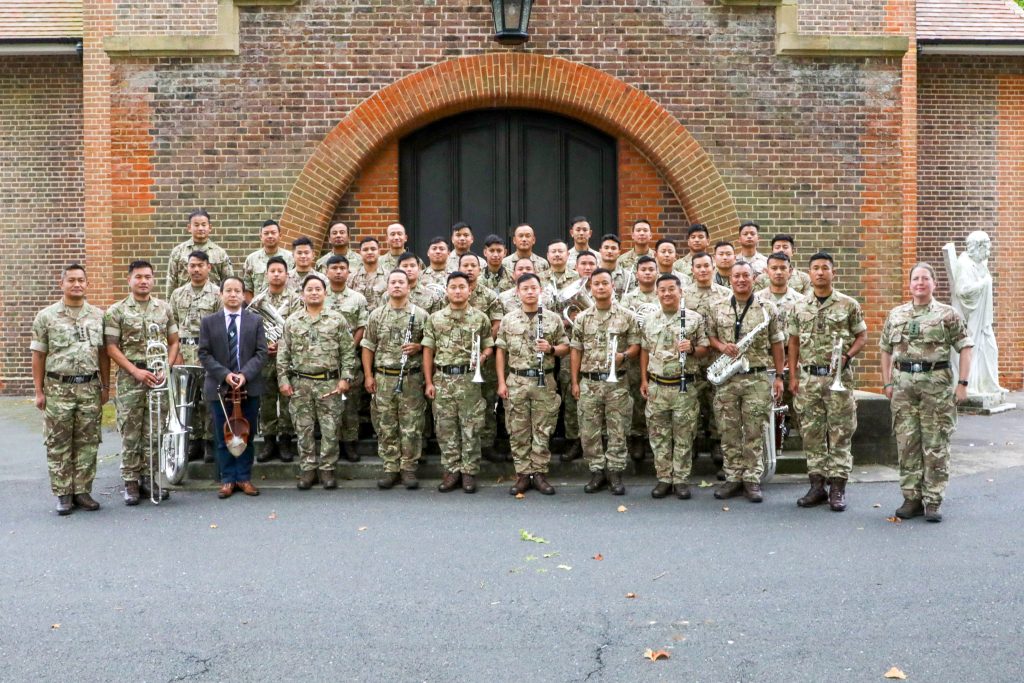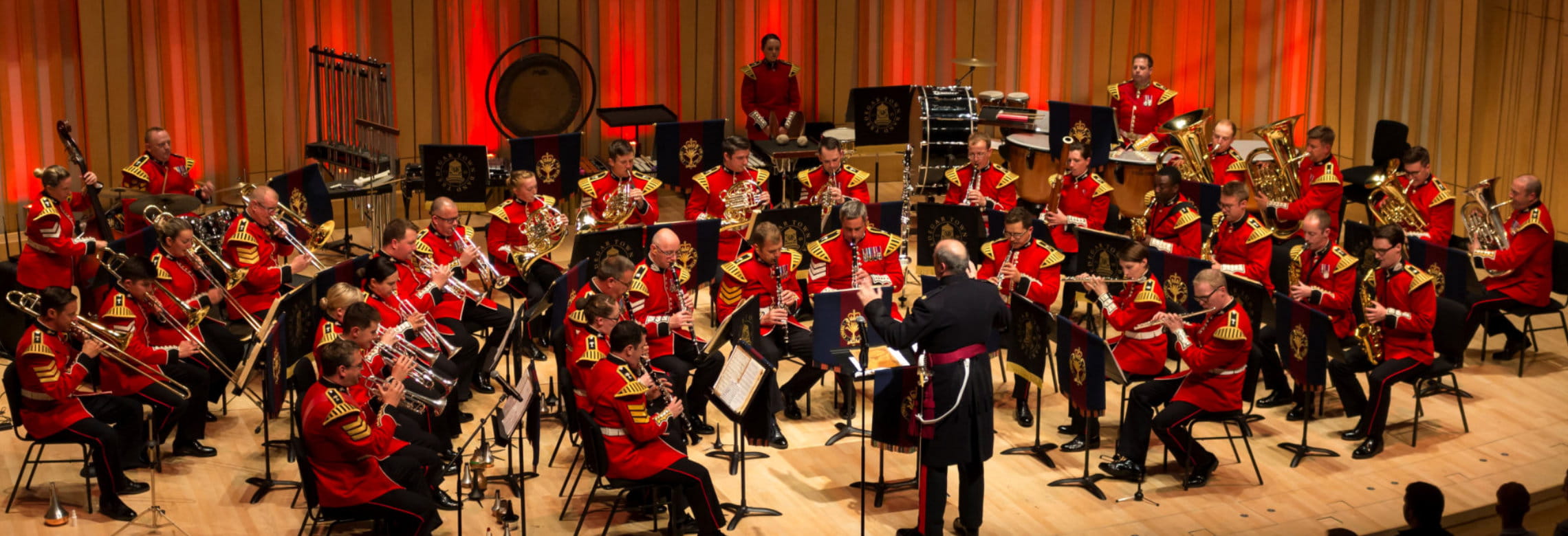The Band of The Brigade of Gurkhas
The Band

The Band of The Brigade of Gurkhas was raised in November 1859 as part of an Indian Army Gurkha Regiment called the Sirmoor Rifle Regiment. At that time, it had 16 Bandsmen and one Naik (a leader) and soon became a part of Regimental life, playing for parades, polo matches, dinners and troop entertainment at the Regimental base at Dehra Dun, North East of Dehli.
In the early days the Band travelled with the Regiment to other areas of India, Malta, Cyprus and Afghanistan. 1886 saw the raising of a 2nd Battalion which allowed for a further 16 Bandsmen and Naik and whenever possible these joined the already trained Band, effectively forming one large Band. As the two Battalions were often co-located this worked well enough, but when separated the Band would support each Battalion with a smaller group both musically and as stretcher bearers on operational duties.
When India was partitioned in 1947 Gurkha Regiments chose their new affiliations to either Britain or India. The 2ndGoorkhas, as the Regiment was now called, chose Britain and sailed for Sungei Patani in Malaya with the Band Instruments. Sadly, there were no Bandsmen to play them as they had all elected to remain in India!
In 1949 sanction was given to raise the Band again, with some 56 recruits commencing training. Ad-hoc musical instruction from co-located British Regimental Bandmasters was given until May 1951 when Captain J P C Bailey MBE was appointed as the first Director of Music. From that day forward they have delighted crowds with their fast and slick marching displays, lively concert music, ethnic Nepali folk tunes and colourful traditional dances.
In 1950 the decision was made to raise a Staff Band for the Brigade and by 1958 there were two flourishing Gurkha Bands. This happy state continued for some twelve years when, because of financial stringencies, the two Bands were amalgamated. Hong Kong and the United Kingdom provided dual bases for the Band in support of the two Battalions of 2nd Goorkhas and other units of the Brigade of Gurkhas. Then in 1994 as a result of the withdrawal from Hong Kong the Band moved back to the United Kingdom permanently.
The Band has travelled extensively throughout the world, including Australia, Brunei, Canada, South Korea, Malayasia, Solomon Islands, Falkland Islands, France, Canada, Korea, Germany, Cyprus, and Belgium.
Today, musicians are recruited into the Band after their Basic Military Training. Initial musical instruction then commences, first under the supervision of the Director of Music then, after approximately four years, at the Royal Military School of Music.
RCAM 30 Legacy Recordings
March to the Everest – Sunil Gurung

March to the Everest is a composition by Assistant Director of Music, Captain Sunil Gurung who has been with the Band of the Brigade of Gurkhas for 23 years. He took up the position of Assistant Director of Music in July 2022. Captain Sunil Gurung used his composition skills learned on the Bandmaster Course at the Royal Military School of Music to combine two Nepali folk tunes to form a traditional military march. This march is very versatile as it can be used at Light Division pace, the traditional pace for the Gurkha Band to march at, but also at heavy pace for other occasions. For those from Nepal, they will also recognise the folk tunes.
Taal Ko Pani – Trad. arr. Wiffin

Taal Ko Pani meaning the lake water is a traditional Nepalese Folk song that was made into a popular song by a group called Nepathya. This is very popular throughout Nepal, especially to dance to, and a must in the Gurkha band repertoire.
Resam Firiri – Trad. arr. Gurung

Resam Firi is a traditional folk tune, sung by all generations across Nepal. It features traditional Nepalese instruments, the Sarangi (Nepalese string instrument), bamboo flute and madal two headed drum. The Band invited retired Gurkha musician Staff Sargeant Giri Bahik to perform on the Sarangi. Bamboo flute was performed by WO2 Indra Gurung, an ex-Gurkha musician who is now a member of the Princess of Wales’s Royal Regiment Band. The Band’s Assistant Director of Music Captain Sunil Gurung performed on the madal.
